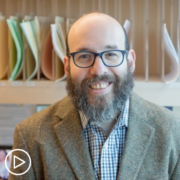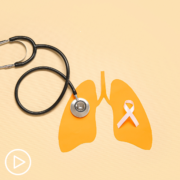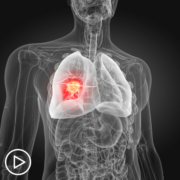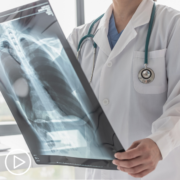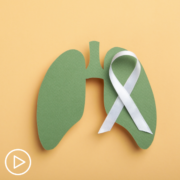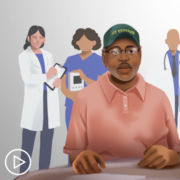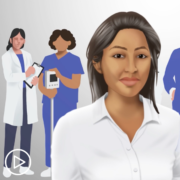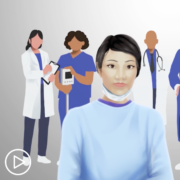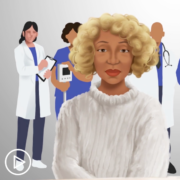Coping With Small Cell Lung Cancer Rapid Treatment from Patient Empowerment Network on Vimeo.
Small cell lung cancer treatment often must start quickly following diagnosis, so what should patients know? Expert Beth Sandy from Abramson Cancer Center explains the importance of rapid treatment and shares advice to help ensure optimal patient care.
[ACT]IVATION TIP
“…if you are short of breath or coughing, get to the doctor…If it’s more than a week and over-the-counter medications aren’t helping, go and get worked up because this is very much a curable illness if we can catch it early. So we want to catch this as early as we can, but you have to get to the doctor and get that workup going…if you are diagnosed with this, make sure that your doctor or when you’re calling in to get a new patient appointment, they know this is small cell, not non-small cell. This is small cell lung cancer. It’s a more aggressive type, and you should be seen immediately very quickly to get started on therapy.”
See More from [ACT]IVATED Small Cell Lung Cancer (SCLC)
Related Resources:
Transcript:
Lisa Hatfield:
So, Beth, small cell lung cancer spreads quickly, so treatment often needs to start right away. How do you help your patients and their loved ones cope with the rapid changes in their health, both physically and emotionally, and the quick start of the intense treatment they’ll receive?
Beth Sandy:
I can’t stress this enough. As soon as someone is developing symptoms of shortness of breath or a cough, it’s really important to get to the doctor because this type of lung cancer can spread very quickly, but you may not even know you have this. So if you have a cough or shortness of breath, it’s important to get to the doctor. Getting a chest X-ray is really easy. It’s cheap, it’s easy, it’s fast, and it’s something that will show this. Almost nine times out of 10 is going to show if you have this type of lung cancer on just the chest X-ray. So it’s important to get your workup very quickly. That’s the first thing I’ll say.
Once you’re diagnosed with extensive stage small cell lung cancer, it’s very important that you are treated quickly. In my office, if you call and you have this diagnosis, we see you within seven days. This is not something…whereas other cancers, if there’s longer than a seven-day wait, they may get pushed the following week. This is a patient that we will see within the week, because it’s important to get them treated right away. A part of that is because they respond so well. Treatments for small cell lung cancer work very well, especially early on, so we need to get those treatments going very quickly because like you said, this is a very rapidly progressing disease. So I think my activation tip really here for this question is…
Well, two, I have two activations, but the first one is if you are short of breath or coughing, get to the doctor. Don’t just say, “Oh, it’s probably my allergies.” If it’s more than a week and over-the-counter medications aren’t helping, go and get worked up because this is very much a curable illness if we can catch it early. So we want to catch this as early as we can, but you have to get to the doctor and get that workup going. My second activation tip is, like I said, for sure if you are diagnosed with this, make sure that your doctor or when you’re calling in to get a new patient appointment, they know this is small cell, not non-small cell. This is small cell lung cancer. It’s a more aggressive type, and you should be seen immediately very quickly to get started on therapy.
Share Your Feedback:
Create your own user feedback survey



